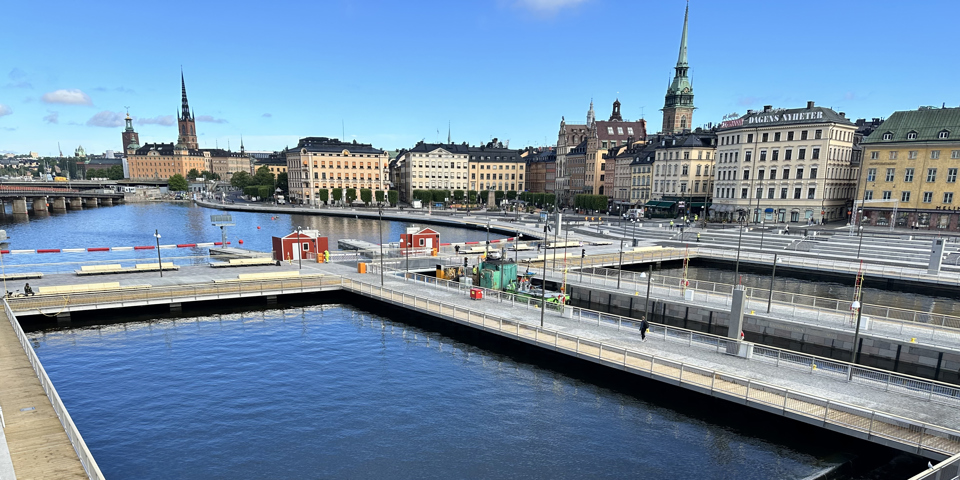The City of Stockholm has made a lot of progress in its work to reduce greenhouse gas emissions through targeted measures and a broad level of engagement. A 70 percent reduction of per capita emissions since 1990 has been achieved with long-term commitments both nationally and locally. The focus has been on concrete action and strong partnerships with businesses and academia.
True climate action
The new plan addresses not only emissions within Stockholm, but also those generated globally through the consumption of goods and services by its residents and businesses.
True climate action requires a holistic approach, tackling the full lifecycle of emissions. Recognising that the climate transition must be equitable, the plan prioritises a just, inclusive transition, ensuring that all residents have the opportunity to participate and benefit from the transition.
The plan emphasises that those who contribute the most to emissions must take the greatest responsibility in reducing them, and that vulnerable groups must be protected from the impacts of climate change.
Acting Mayor of Stockholm, Mr Anders Österberg, emphasises the urgency of the situation:
"It is imperative that we act decisively to reduce the emissions and protect our city and its operations from the severe consequences of climate change. This transition is crucial not only for safeguarding our future, but also for enhancing our overall resilience, fostering a competitive business environment, and promoting greater equality. As leaders, it is our responsibility to guide this development in the best interests of Stockholm's residents."
Concrete measures underpin the transition
The Climate Action Plan 2030 focuses on five key transition areas:
- Achieving a Just, Inclusive Transition: Ensuring that climate action benefits all residents and addresses existing social and economic inequalities.
- Developing a Climate-Positive Energy System: Closing the door to fossil energy sources and implementing carbon capture and storage technologies.
- Encouraging Sustainable, Fossil-Free Transport: Promoting walking, cycling, and public transportation, and phasing out fossil-fuel vehicles in favour of electric.
- Planning, Building, and Developing the City in a Circular and Sustainable Way: Embracing circular economy principles and promoting sustainable planning and building practices.
- Promoting Consumption with a Low Climate Impact: Encouraging sustainable consumption patterns within the City's own organisation.
These areas are underpinned by approximately 150 concrete measures. The plan stresses the importance of continuous development and innovation, with new measures being added as opportunities arise.
The City is introducing an emissions budget for Stockholm, setting a limit of 9 million tonnes of CO2e for the period 2024–2040. This budget acts as a compass, guiding the city's progress towards its climate goals and ensuring accountability.
Stockholm is a city that assumes responsibility for reducing its global carbon footprint. The plan outlines the city's goals, including reducing emissions from energy use and transport by 80% by 2030, becoming fossil-free by 2040, and halving consumption-based emissions by 2030.
Mayor Österberg concludes:
“With this ambitious plan, Stockholm is not only committing to a sustainable future for its residents but also setting an example for cities worldwide. The Climate Action Plan 2030 signals a clear call to action, inviting other cities to join Stockholm in leading the global transition towards a climate-positive future”.

